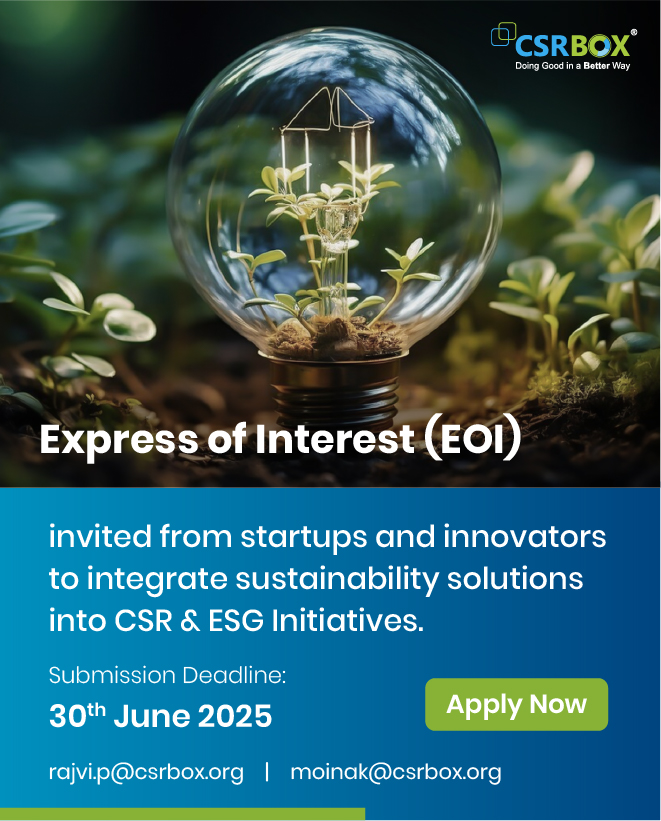Subscribe our Weekly Newsletter
RFP - for Scoping Study on the Bio-input enterprises and their Role in Strengthening Agroecological Transitions

Organization: VAAGDHARA
Apply By: 05 May 2025
About the Organization
VAAGDHARA is a non-profit organization, registered under Rajasthan Societies Registration Act, 1958. VAAGDHARA draws its name from its area of working i.e., Vagad-the tribal area of Rajasthan adjoining Gujarat and Dhara (stream). The core value of the organization is Swaraj ‘self-reliance’ which is drawn from Gandhian philosophy, but at the same time, it believes in the use of latest technology for the development of tribal and poor.
About the Proposal
India’s agriculture faces a critical transformation as the current model—based on chemical-intensive practices and monocultures—has led to soil degradation, biodiversity loss, and increased climate vulnerability. These challenges highlight the urgent need for more sustainable farming systems. Agroecology offers a holistic solution, integrating ecological principles with traditional knowledge to restore ecosystems, secure farmer livelihoods, and provide nutritious food. A key enabler of this shift is the use of bio-inputs—biofertilizers, biopesticides, composts, and microbial inoculants—that reduce dependence on chemicals and support regenerative practices. However, India’s bio-input sector remains underdeveloped. Farmers face difficulties accessing quality inputs, with limited research, weak infrastructure, and fragmented institutional support. This impedes the transition to agroecology.
To address these gaps, a scoping study is proposed under the Bhoomi Ka to analyze the bio-input market, identify demand trends and assess the barriers preventing wider adoption. The study will highlight the role of bio-inputs in driving agroecological transformation, strengthening ecopreneurial capacities of local community and building regional resilience.
Bhoomi Ka is a collaborative initiative aimed at strengthening agroecological value chains, building farmer capacities, and enhancing market access for smallholder farmers, supported by the Federal Ministry for Economic Cooperation and Development (BMZ) and Welthungerhilfe (WHH). It is implemented by VAAGDHARA, a non-profit organization rooted in Gandhian values of swaraj (self-reliance) and dedicated to empowering tribal and marginalized communities through sustainable development and the use of appropriate technology.
Objectives:
- To map key actors, enterprises, and initiatives in the bio-input ecosystem across the three states.
- To assess the current demand, supply, quality, and accessibility of bio-inputs for smallholder farmers and FPOs.
- To identify policy, regulatory, and market-level gaps and challenges impacting the sector’s growth.
- To recommend strategies, business models, and policy interventions to scale up the production, distribution, and use of bio-inputs in support of agroecology.
Scope of Work
- The consultant/agency will be responsible for:
- Conducting a landscape assessment of bio-input producers, suppliers, distributors, and institutional actors.
- Identifying key product categories (e.g., biofertilizers, biopesticides, soil enhancers) relevant to agroecological farming in the region.
- Analyzing supply chain dynamics, quality control mechanisms, and market access issues.
- Mapping existing policies, schemes, and institutional frameworks that support or hinder bio-inputs.
- Documenting case studies of successful models (e.g., FPO-led production, decentralized units, women-led enterprises).
- Engaging with farmers, FPOs, bio-input producers, researchers, and government officials through interviews, FGDs, and stakeholder consultations.
- Proposing actionable recommendations, including region-specific interventions, to improve the accessibility, quality, and adoption of bio-inputs.
Methodology
- The consultant/agency is expected to propose a detailed methodology that includes:
- Desk Review of existing studies, government reports, and market data.
- Field Visits to selected districts across the three states.
- Key Informant Interviews (KIIs) with farmers, FPOs, input producers, researchers, and government officials.
- Focus Group Discussions (FGDs) with farmer groups and community-based organizations.
- Stakeholder Workshops/Consultations to validate findings and gather feedback.
- Use of quantitative and qualitative tools to analyse the current landscape and identify gaps and opportunities.
Deliverables
- Inception Report with detailed methodology, timeline, and stakeholder list (within 10 days of signing the contract).
- Final Scoping Study Report including:
- Gap and opportunity analysis
- Success Case studies
- Strategic and policy recommendations
- Presentation of Findings to key stakeholders and partners.
- Datasets, tools, and reference materials used during the study.
Eligibility
- Proven experience in conducting impact assessments, preferably in agroecological field, social development, or community projects in context to agroecology and Ecopreneur ship, organic inputs supply chain system development
- Strong analytical skills, with experience in qualitative and quantitative research methods.
- Excellent communication skills for conducting interviews and facilitating discussions.
How to Apply
The Application comprised of two separate document technical and financial proposals will be addressed to hrd@vaagdhara.org via e-mail by 5thMay 2025.The subject line of the email should read: “RFP – Scoping Study on the Bio-input enterprises and their Role in Strengthening Agroecological Transitions.
Stay in the loop with the newest RFPs and Grants through NGOBOX's WhatsApp Channel. Join now by clicking here!
Latest Online Store
Latest Grants
Latest News
© Renalysis Consultants Pvt Ltd























.jpeg)
.jpg)
.jpg)
 (1).png)